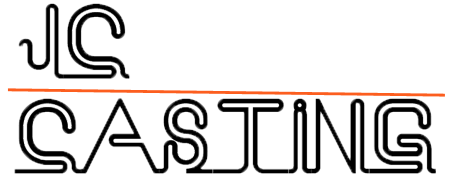What is Titanium Casting
Titanium Casting is a manufacturing process. Like ohter casting process, it involves the production of specialized components through metallic replications of wax molds. This process can make a product with a smooth finish that requires very little post-process finishing.It is used to create complex/detailed Titanium parts and shapes for industrial use.
With the investment casting process, we can create virtually any metal product you desire. And castings can be done by hand in small batches or can be semi-automated to produce hundreds of parts at once.
JC Casting is a titanium casting manufacturer in China. Our titanium castings are widely used in titanium aerospace parts, titanium parts for turbochargers, titanium musical instruments, titanium motorcycle equipment, titanium bicycle parts, titanium parts for the oil and gas industries. The titanium casting parts’ weights range is from 10 grams to 50 kgs. Our advanced casting equipment ensures us to be able to provide our customers high standard precision castings.
Technique:
Lost-wax investment casting and lost-foam investment casting are both capable of complicated shapes and small features containing high precision and quality surfaces.
Equipment:
Wax injection machines, desiccant rooms, de-wax machines, vacuum melt towers, sinter kiln, and ultrasonic inspection machines.
Size:
Per client’s specifications and requirements, from 5g to 30kg.
Process:
Wax injecting, slurrying, de-waxing, sintering, casting and furbishing.
Advantage of Titanium Casting
- Strength and lightweight: As strong as most common steels with less than 40% of the counterpart’s weight
- Corrosion resistance: Almost as resistant to chemical attack as platinum. One of best candidates for seawater and chemical handling components
- Cosmetic appeal: Titanium cosmetic and technical appeal even outperforms the precious metals especially in the consumer marketplace
Titanium Casting Applications
There are many different industries that benefit from our high-quality Titanium Investment Casting.
- AerospaceJet engine fans and compressor blades, airframe structures, and engine nacelles
- Military DefenseAirborne Weaponry, missile components, & Firearms
- MedicalSurgical implants such as- spine, knee, hip, shoulder, and ankle components, surgical tools/machinery; dental equipment
- AutomotiveTurbine wheels, valves, turbocharger compressor wheels, exhaust components,Brake Pedal
- Power Tools & Hand ToolsHammer Drill components, Pry Bars, hammers, and other construction tools
- Consumer GoodsBicycles, laptop/cell phone chassis’, tennis rackets, and golf clubs
- Marine & Seawater ApplicationsUndersea surveillance devices, saltwater heat exchangers, propeller shafts, oil exploration, seismic mapping, oil/gas recovery
- Chemical Processing Petrochemical processing of- Halides, Oxidizing Chlorides, Pure Terephthalic Acid, Hydrobromic Acid, Sulfuric Acid, and Phosphoric Acid
Titanium Alloys Grade
There are two common casting titanium alloys: GR2, GR5 (Ti-6Al-4V). Please see below for detailed characteristics, applications.
| Grade | Titanium Alloy Grade 2 | Titanium Alloy Grade 5 |
| Details | Titanium Grade 2 is light weight and highly corrosion resistant. It is an unalloyed titanium and is considered a “commercially pure” titanium (TiCP). Thanks to its varied usability and wide availability, Grade 2 is used in most of the chemical processing plants and is cold formable. Grade 2 plate and sheet can have ultimate tensile strength at and above 40,000 psi. With moderate strength and excellent corrosion resistance, it also offers ductility and high impact toughness, and good weldability. It is used commonly in applications that require welding. Grades 2 is not hardenable by heat treatment. | Titanium Grade 5 is the most commonly used Titanium worldwide. Titanium Grade 5 is alloyed with 6% Aluminum and 4% Vanadium and is commonly known as Ti 6Al-4V. Grade 5 or Ti 6Al-4V, accounts for 50 percent of total titanium usage the world over. It can be heat treated to enhance mechanical properties. It can be used in welded fabrication at service temperatures of up to 315°C. This alloy offers high strength at a lightweight, useful formability and high corrosion resistance. |
| Applications | Chemical Processes: Grade 2 titanium is highly resistant to chemical environments including oxidizing, alkaline, organic acids and compounds, aqueous salt solutions and hot gases. Its corrosion resistance holds up in, nitric acid, mildly reducing acids and wet chlorine or bromine gas. Marine: In seawater, Grade 2 is resistant to corrosion at temperatures up to 315°C, rendering it ideal for a variety of marine uses. | Industries: Aerospace, medical, marine and chemical processing industries and oil field services. Plate: The material is worked to the closest size of the desired part and the grain structure of the finished piece is more homogenous. Heat Barrier: Titanium stops the heat and does not transfer to the rest of the assembly. |
We have advanced titanium investment casting abilities. We are located in Shandong, China. Our cost and lead time have more advantages than others. With our high-quality certifications and5 S process control, we offer the best casting solutions available.
